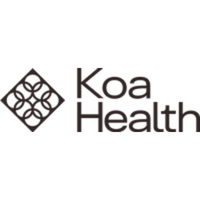Why trust matters: earning employee trust around health and wellbeing data

This is perhaps a large part of why only 10% of employees actually use their organisation’s employee assistance programme. For instance, offering digital mental health support to your workforce could be challenging if your employees are worried that data collected could inform their performance reviews. It might make them hesitant to sign up.
So how can employers better earn the trust they need to effectively implement health and wellbeing strategies? Below we outline ways to instil employees’ trust in your health and wellbeing strategy.
Collect data responsibly
To gain the trust of your employees, you’ll need to demonstrate an ethical approach to data. It’s essential to make sure they’re fully aware of the data you’re keeping and how you’ll be using it.
We believe that building trust means going above and beyond the legal minimum. For example, we do our best to ensure that information about data use is communicated in simple English (not legalese). This sounds simple in theory but is hard in practice, since companies need to have privacy policies and end-user licence agreements that can stand up in court. However, an immediate gain is possible by introducing simple summaries that pithily describe the main points about how data is used. Even better is to also introduce simple nudges to encourage the user to read the summary by saying it’s a one-minute read, for example.
People are understandably hesitant to hand over their mental health data to companies. But transparently explaining to them how data will be collected and used is a critical part of a data ethics strategy, which can make sharing their sensitive information less intimidating.
Effectively protect data
Your next consideration should be how to store user data. By following data storage best practices, you can instil employee trust in your approach to data and privacy. Whether you’re storing data yourself or working with third-party providers, your employees need to know that their data is safe. An important element here is not simply to throw out compliance abbreviations. That a company meets ISO 27001 is great, but most employees are not going to really know what that means.
You can give your employees further comfort by submitting to external audit by recognised authorities. For example, ORCHA has a robust framework for assessing health apps, which includes use of data, alongside the quality of the evidence base, user-centred design, etc.
Even better is to submit to an external assessment that specifically focuses on data ethics. In Koa Health’s recent Ethics Audit, carried out by Eticas Research and Consulting, we were assessed on a range of criteria that included data protection. Our solutions were found to have observed ‘systematic integration of data protection and ethics requirements.’ Demonstrating your commitment to data protection by commissioning and publishing the results of external audits can reassure your staff that you take their data seriously.
Only use necessary data, when it’s necessary
It’s also worth reassuring your users that you’re only collecting necessary data from them. For example, if you don’t need location data, don’t ask for it. It’s tempting to justify collecting data on the basis that it might be useful in the future, but a good data ethics strategy should avoid such ‘fishing trips’. If you cannot explain to a user why the data you collect won’t immediately provide value to them, then don’t collect it.
A further point here is to only collect the necessary data when it’s necessary to do so. It’s very tempting to get consent for all data collection when a user signs-up, but this isn’t always desirable. For instance, in one of our apps we collect some accelerometer data as part of helping users get the most benefit from breathing exercises. However, we only ask for permission to use this data at the point that a user decides for the first time that they want to do a breathing exercise.
Commit to using data ethically
Being trusted and trustworthy is critical to helping people improve their health, and using data ethically underpins this trust.
We believe that data (when used appropriately) has the potential to shape an effective and ethical approach to health and wellbeing at companies everywhere.
But what constitutes appropriate and ethical use of data? Here are a few requirements we’d suggest consdiering when evaluating how you (or a partner/provider) are planning to use data.
- How the data is used must be understandable and transparent.
- Employees must have control of their individual data.
- Data must be collected and stored securely.
- Companies must make themselves accountable.
And finally, this one is a suggestion, as opposed to a requirement, whenever possible, data should be used to improve the health and happiness of your staff.
Whatever your company’s approach, changes will need to be made as you go along. And that can only be done with the help, collaboration, and trust of your team, as well as that of any providers and partners you leverage to deliver your health and wellbeing strategy.
The author is Oliver Smith, strategy director & head of ethics at Koa Health.
This article is provided by Koa Health.
Koa Health will be exhibiting at this year’s live and in-person Employee Wellbeing Congress on 30 September. Find out more and register to attend.
Supplied by REBA Associate Member, Koa Health
At Koa Health, we believe digital mental health solutions are the answer to mental health issues.







